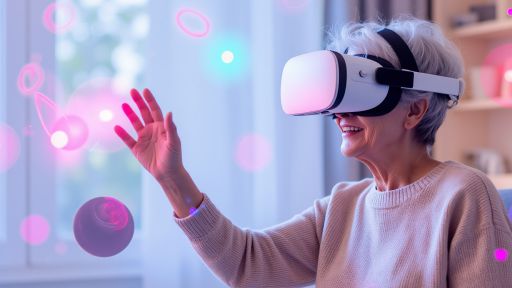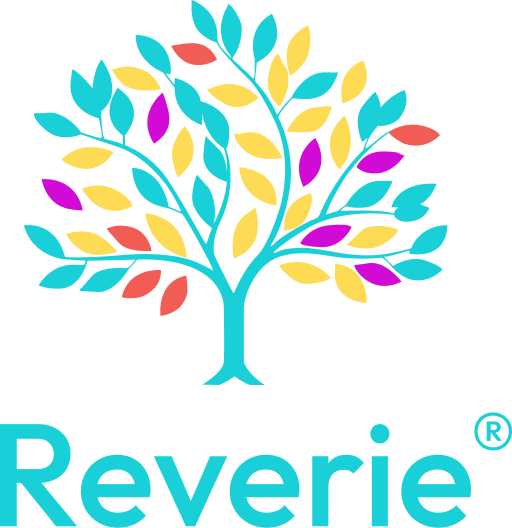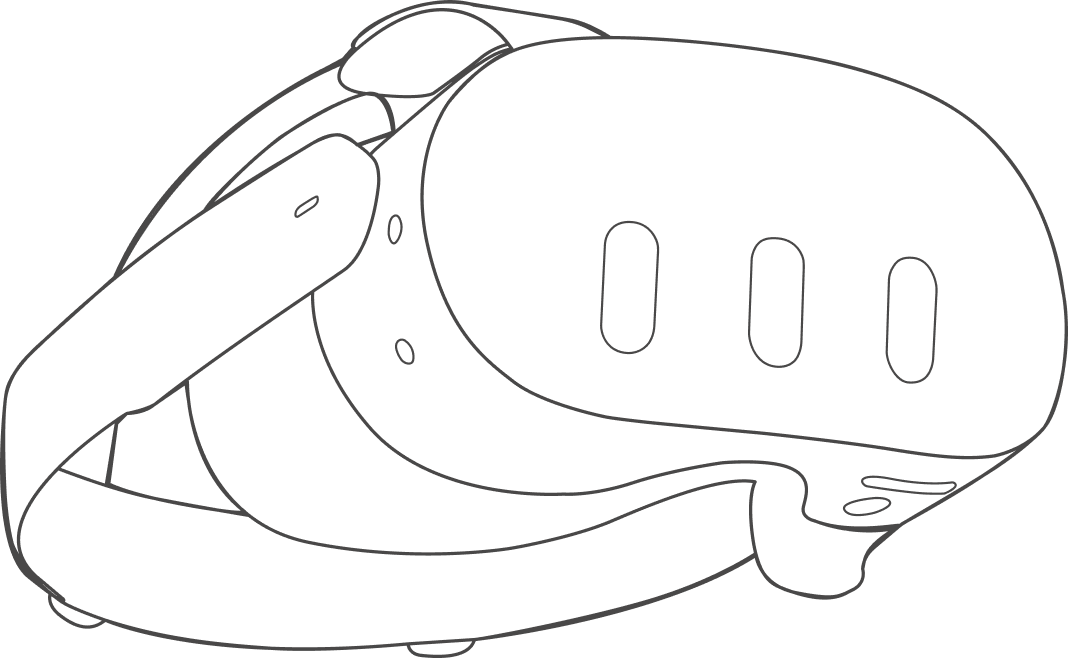
22/04/2025 2:27 pm
Cut Dementia Medication Use with Reverie VR Therapy
How Reverie VR Can Reduce Medication Dependency in Dementia Care Homes Through Alternative Therapies
Managing behavioural and psychological symptoms of dementia (BPSD) is a core challenge in residential care. Traditionally, this has often involved the use of antipsychotics, sedatives, and other pharmacological treatments. However, growing research and regulatory guidance urge care homes to reduce reliance on medication wherever possible. As a care home owner, embracing non-pharmacological interventions such as Reverie VR not only aligns with best practice but enhances resident wellbeing and strengthens your care home’s reputation for compassionate, modern dementia care.
The Risks of Overmedication in Dementia Care
Medications used to manage agitation, anxiety, or aggression can have serious side effects for dementia patients—including increased risk of falls, stroke, and reduced quality of life. Regulatory agencies such as the CQC (Care Quality Commission) and NICE (National Institute for Health and Care Excellence) advocate strongly for the minimisation of antipsychotic use in dementia care. Homes that demonstrate a clear strategy to reduce medication reliance through effective alternative therapies are viewed more favourably in inspections and by families.
Introducing Reverie VR: A Calming Alternative
Reverie VR is a gentle therapeutic tool offering immersive 360° visual experiences tailored specifically for individuals with dementia. Whether through tranquil nature scenes, nostalgic reminiscence content, or familiar environments, Reverie VR helps reduce stress, soothe agitation, and engage residents—without medication.
How Reverie VR Supports Medication Reduction
Reduces Agitation and Anxiety Naturally
Agitation is one of the most common triggers for sedative use in dementia care. Reverie VR’s calming experiences offer a safe, non-invasive solution for emotional regulation, helping staff de-escalate situations and reduce the perceived need for medication.
Enhances Emotional Regulation
By incorporating VR sessions into daily care routines, residents benefit from regular emotional support. This consistency helps prevent distress and improves overall mood, reducing the likelihood of behavioural flare-ups.
Empowers Person-Centred Care
Rather than a ‘one-size-fits-all’ chemical intervention, Reverie VR offers tailored content based on a resident’s life story, preferences, and emotional needs. This helps address the underlying cause of distress rather than suppressing symptoms.
Scientific Evidence Supporting Non-Medication Approaches with VR
Reduced Antipsychotic Use:
A review in the Journal of Alzheimer’s Disease noted that immersive VR experiences can lead to measurable reductions in antipsychotic prescriptions by managing symptoms in non-invasive ways (Saredakis et al., 2020 - j-alz.com).Improved Emotional Wellbeing:
Research published in JMIR Serious Games demonstrated that regular VR experiences significantly improved residents’ moods and reduced the frequency of agitation episodes, often the root cause of medicating (Appel et al., 2020 - games.jmir.org).Alignment with NICE Guidelines:
The Health Innovation Network outlines VR as a promising non-pharmacological intervention for BPSD, strongly aligning with NICE and CQC recommendations for person-centred dementia care (HIN, 2017).
Practical Implementation in Your Care Home
Integrate into Behavioural Support Plans
Use Reverie VR as a first-line response for residents exhibiting signs of distress or restlessness, minimising reliance on medication.Train Staff Thoroughly
Equip your team with the training to use VR confidently and identify which residents benefit most, ensuring consistent and effective use.Track Results and Adjust
Monitor how residents respond to VR sessions and adjust care plans accordingly. Use this data as evidence during regulatory inspections and family meetings.Communicate with Families
Let families know about your commitment to alternative therapies and reduced medication use—this reinforces your home’s reputation for progressive, ethical care.
Benefits for Your Care Home
Compliance with Regulatory Expectations: Aligns your care model with CQC and NICE guidelines.
Enhanced Resident Wellbeing: Offers safer and more meaningful emotional support.
Positive Family Perception: Builds confidence in your home’s innovative, person-centred ethos.
Cost Efficiency: Reduces long-term medication costs and potential complications related to side effects.
Conclusion
In an environment where regulatory bodies and families alike seek non-drug approaches to dementia care, Reverie VR provides a compelling, effective, and compassionate solution. Reducing medication dependency not only protects your residents but elevates your care home's standing as a leader in ethical, high-quality dementia care.
Interested in learning more?
To learn more about how Reverie VR can transform your admissions process and improve resident outcomes, please contact our team for a personalised consultation.

22/04/2025 11:23 am
Reduce Dementia Admission Stress with Reverie VR
As a Care Home Admissions Manager, you see firsthand how stressful the transition into a care home can be for residents living with dementia. Anxiety, confusion, and agitation often accompany this significant change, affecting residents’ emotional wellbeing and complicating their initial adjustment. Embracing innovative therapeutic tools such as Reverie VR can substantially ease admission-related stress, providing gentle, calming experiences that significantly enhance the transition process.



Get in touch & book a demo
For more information or to arrange a free demo please get in touch by pressing the button below.
